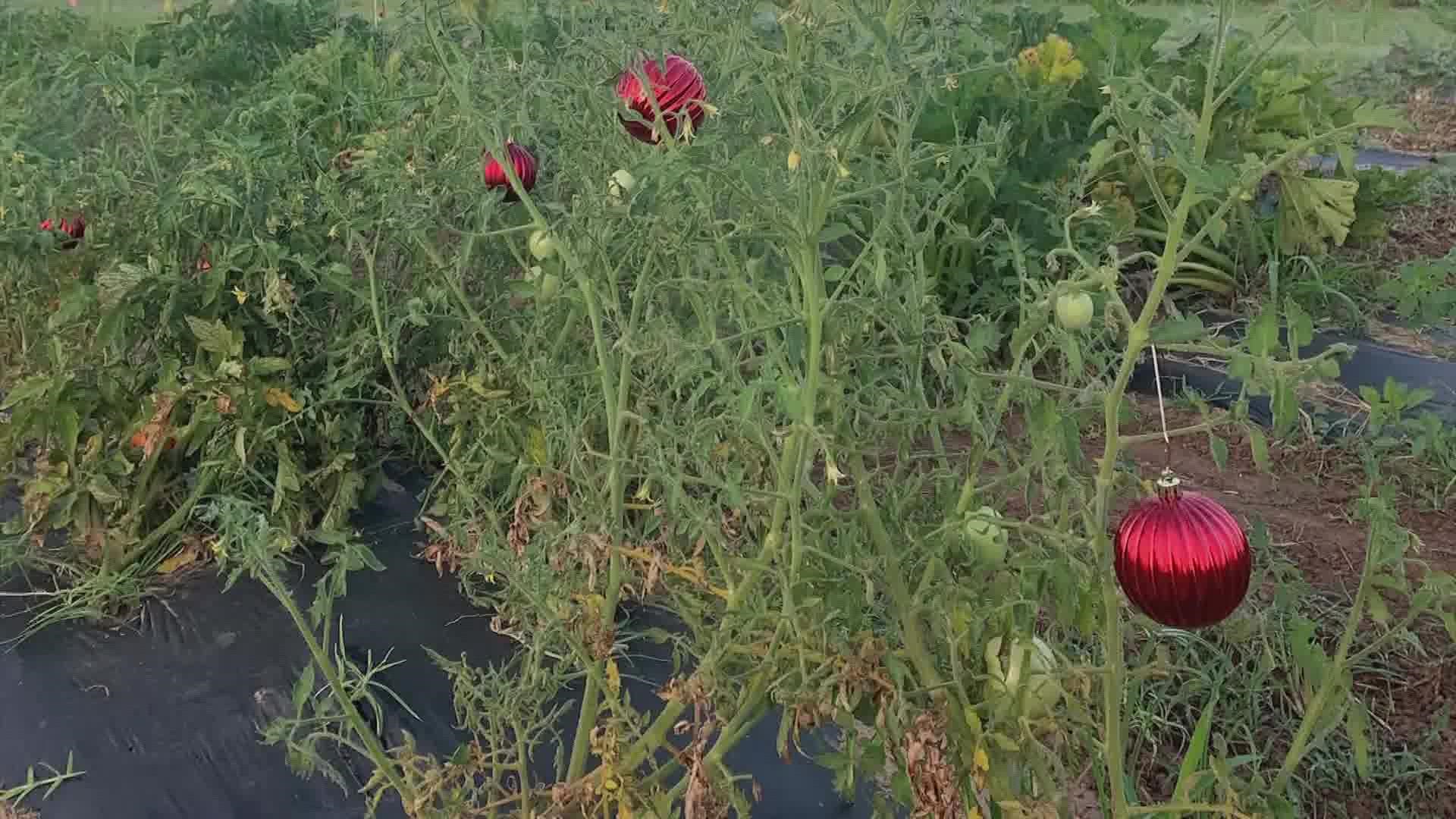HOUSTON — Our VERIFY team is looking into a Facebook post that has gotten the attention of a lot of gardeners. It claims you can keep birds away from your tomato plants by simply hanging red Christmas ornaments on them.
The photo shows red ornaments hanging from a tomato plant. The person who created the post claims, “My tomato plants are loaded with green tomatoes. Now is the time to put out red ornaments. The birds are attracted to the red balls, come in to check them out, and find that they yield nothing. So when the tomatoes ripen, the birds don’t bother with them.”
One post has been shared on Facebook more than 50,000 times.
Barbara asked us to VERIFY if it is true.
Our source for this is Christina Reid, the AgriLife Extension Horticulture Agent at Texas A&M in Lubbock, Texas.
Reid is currently growing 300 varieties of the fruit and tending 2,000 tomato plants. She explains ripe tomatoes are high in sugar and water, so birds feed off of them for nutrition which can be a burden for gardeners.
After years of trial and error, Reid said she found a possible remedy online: round red Christmas tree ornaments.
Reid tells the VERIFY team, “I placed them on my tomato plants very early in the season once they began to flower -- well before I would have a ripe tomato -- and watched the birds descend into my garden while my neighbors snickered. The birds, mostly crackles, kept coming day after day for a few weeks to peck at the red ornaments but left the plants otherwise alone. I noticed about a month later that I wasn’t seeing birds in my garden on a regular basis and that summer I didn’t harvest any tomatoes with holes pecked into them! These birds really do think the red ball Christmas ornaments are tomatoes!”
Reid said more than a decade later, she is still decking her tomato plants with red Christmas balls and, so far, has not lost a single tomato.
So we can VERIFY the claim is true.
Reid said tomatoes don’t typically produce when temperature rise over 90 degrees. However, if you have tomato plants that didn’t survive the summer heat, she says you can replant them in the next three weeks and still get a harvest in the fall.

